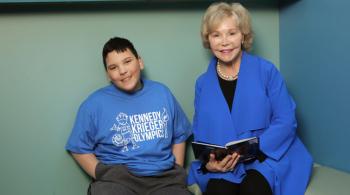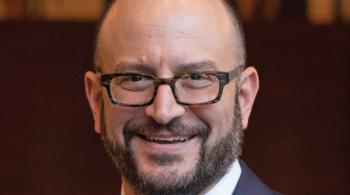My son, Max, was born with neurofibromatosis type 1, a genetic disorder occurring in one out of every 3,000 births. It’s characterized by changes in skin coloring and the growth of tumors along nerves in the skin, brain and other parts of the body, although signs and symptoms vary widely among affected individuals, and more than 300 different mutations exist. In addition to the benign tumors growing on the ends of many of his nerves, Max has autism, attention deficit hyperactivity disorder (ADHD), and issues with learning, speech and fine motor skills.
Since Max turned five, his doctors have used full-body MRIs to determine how quickly his tumors are growing. For nearly a decade, Max had no issues with the anesthesia he received while getting an MRI—a three-hour-long procedure. All of his MRIs were done at a highly respected research institution.
But at one routine MRI that Max had at age 14, a very different situation unfolded. The anesthesiologist introduced herself, but did not sit down to review any of Max’s history with me. Upon awakening after the MRI, Max became completely disinhibited, flailing around in the hospital bed and shouting very sexual things to those of us who were trying to keep him safe. It took three hours for him to calm down enough for me to drive him home.
No one at the hospital followed up with me regarding this incident, so I did my own research. I came to understand that he had been given ketamine, a drug that causes serious disinhibitions in teenagers, especially those with autism. I wrote an analysis of the entire incident, presented it to the medical team involved with Max’s care, and stated I would never authorize the use of ketamine again. The anesthesiologist replied that, if she had to, she would use it again.
I took my case to the hospital’s bioethics department, as there were so many ethical and patient safety issues that needed to be addressed. The bioethics department replied that it was looking to correct several issues raised by the incident.
Three years later, I received an apology from the head of the anesthesiology department for the treatment Max and I had received. I also learned that the anesthesiologist involved had been demoted and then fired.
I persisted because I didn’t want to see any more children get hurt by the negligence of this anesthesiologist. It took a lot of work to make my case. Now, I teach others how to do the same. We must speak out and hold people accountable for mistakes that happen. The words “I’m sorry” go a long way.
Diane Bark is a member of the Maryland Center for Developmental Disabilities Community Advisory Council. She also serves as a patient advocate at the University of Maryland Medical System’s Baltimore campus.









